Article by Bak Keung Ko and William Koestiono
Photo by Bak Keung Ko
On July 11th, the New York Japan Society held a movie screening for I’m Flash followed by the Q&A with director Toshiaki Toyoda. The New York Festival of Contemporary Japanese Cinema is currently holding its 7th annual film festival. This festival also known as Japan Cuts Festival premiering famous Japanese films for ten days.
Fujiwara Tatsuya plays the main character, Yoshino Rui. Fujiwara is famous for his play in Death Note and Battle Royale. Given his background in these Japanese thriller films, Fujiwara is the perfect actor to portray a leader of a religious sect. This religious leader occasionally questions himself to seek purpose in his life. He is tired of living under controlled by his family, especially his mother and sister who use him for their own benefits.
The story revolves around Yoshino Rui (Fujiwara Tatsuya), following his involvement in a drunk driving accident. He flees the scene with a dead biker and a comatose woman. Yoshino’s family hires a group of hit men (Ryuhei Matsuda, Kento Nagayama, and Shigeru Nakano) to protect his life and oversee him during his ‘exile’ in Okinawa. Rui has an undisturbed place in Okinawa called Life is Beautiful. In here, Rui gathers the food by spearing the fish in the sea, paying a visit to a girl in the hospital, all while searching for an epiphany.
There are many beautiful aspects in this movie. For example, the bodyguards who questions themselves between loyalty to protect their ‘master’ or assassinating him for bounty, and Rui, who undergoes a series of sudden realization or epiphany about his life, realizing that life is too short and he needs to atone for his past sins. I’m Flash! shows different kinds of perspectives for the audience to see. The bodyguard has different opinions towards Rui. When Rui wants to quit his family-run business as a religious cult, the bodyguards are ordered to kill him instead of protecting him. After bonding with Rui in his Okinawa house, they have a change of heart. They begin to protect Rui instead of kill him, ignoring the orders given by their contractor.
On the other side, Rui wants to escape his family-run business because he feels that it is not right for him. He wants to enjoy his life as a simple man, not a famous person who misleads his followers for the sake of a family-run business. He feels that his mother and sister are using his popularity to gain a profit from his religious sect. During his stay in Okinawa, he reflects on his personal life. Rui develops a new belief while praying his family’s death shrine with his father’s skull at the altar. He also begins to live as a simple person struggling to survive on an island. After several events in Okinawa, Rui develops and experiences massive concepts and ideas on how life works for him.
The plot in the story utilizes reverse chronology, meaning the story is revealed in reverse order. At the beginning of the film, Rui is revealed to become ‘exile’ in Okinawa after an accident. The story pans to a freelance ‘bodyguard’ looking for a job in town. As he wanders around the town, he is hired along with two other bodyguards to protect Rui. The story of the accident is later explained in the middle part of the film, followed by the cause of the accident of where Rui meets the woman in the car and the reason he went ‘exile’ to Okinawa.
The story leaves the audience with a surprise at the end of the story. Although the movie is predictable, it gives amusement for the fans of Fujiwara Tatsuya to enjoy a different side of him in the movie.
After the movie, a Q&A session was held with the director himself on stage. Fans and audience alike were able to ask about the movie, the filming process and more. One notable remark Toyoda made was that the film was highly influenced by the Japan 3/11 earthquake and tsunami disaster. The Q&A was followed by the I’M FLASH! opening party where people networked, socialized, and also took pictures with Toyoda.
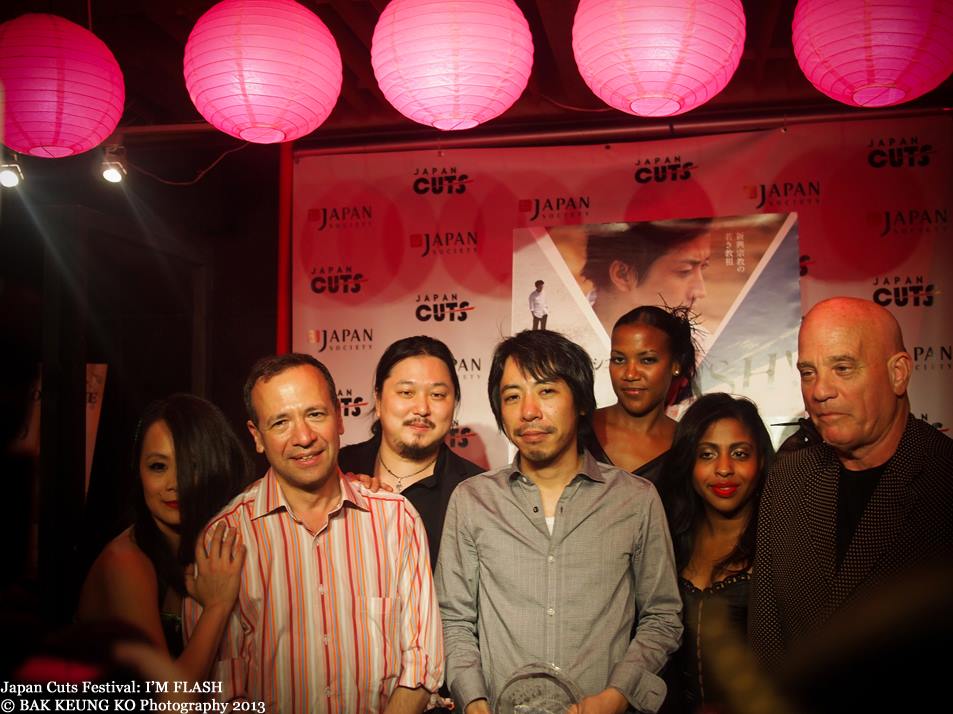
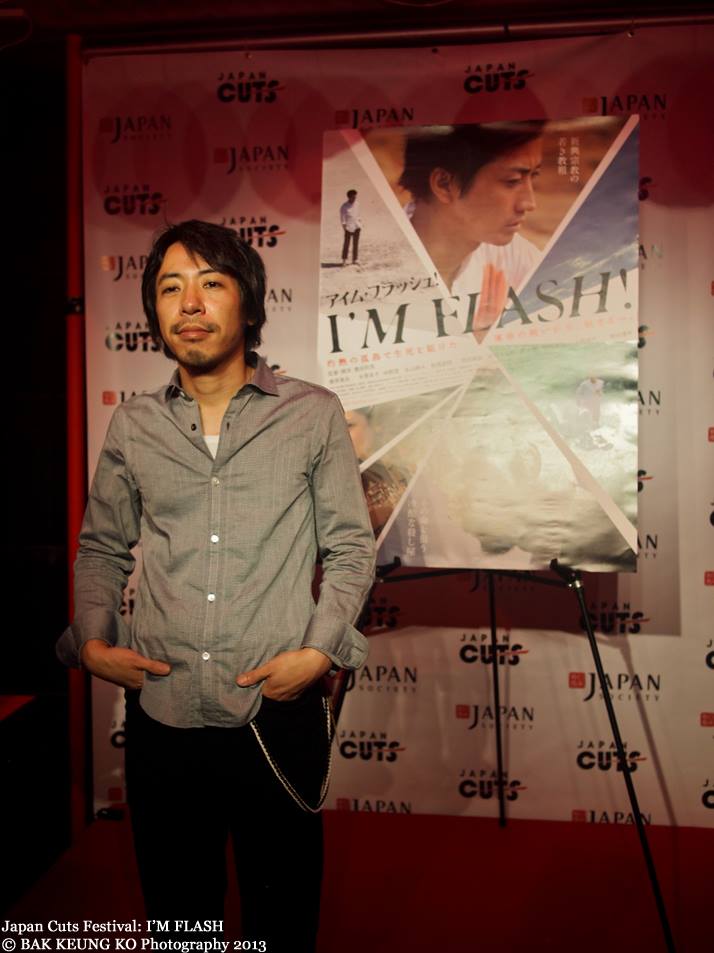
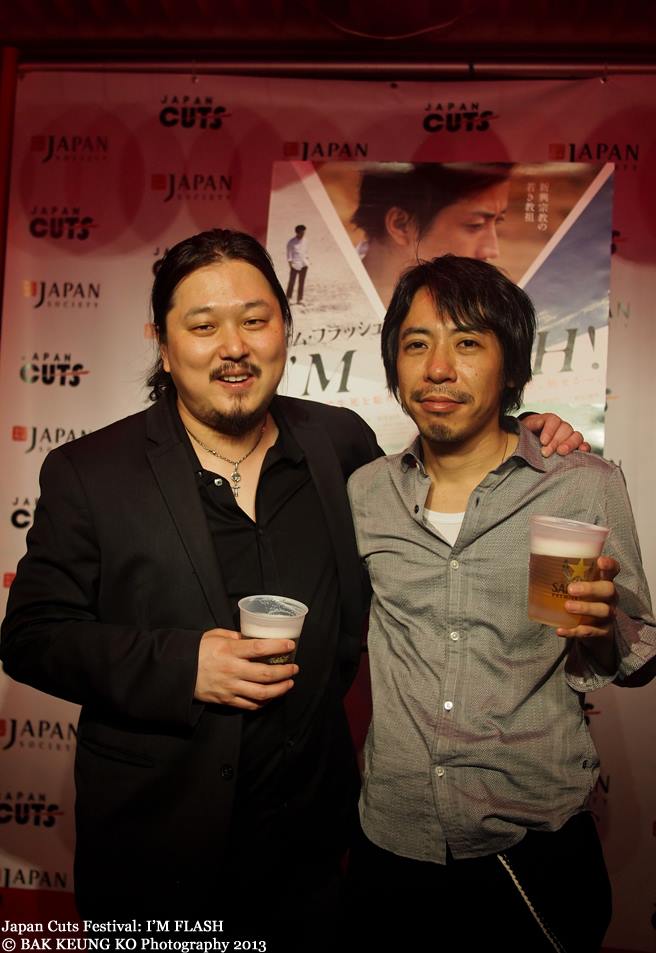
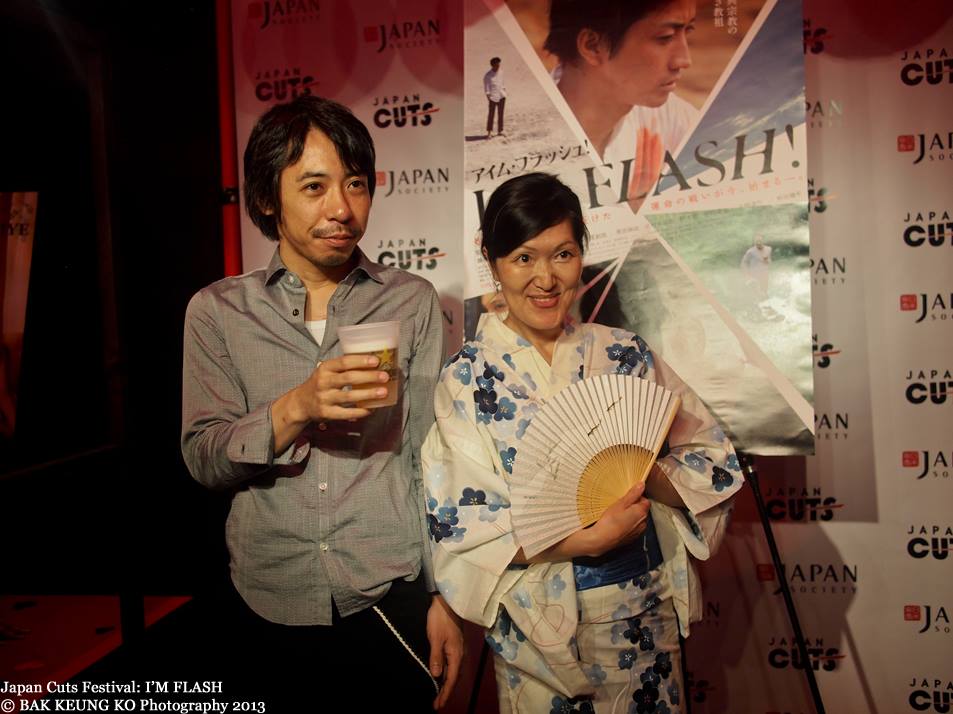
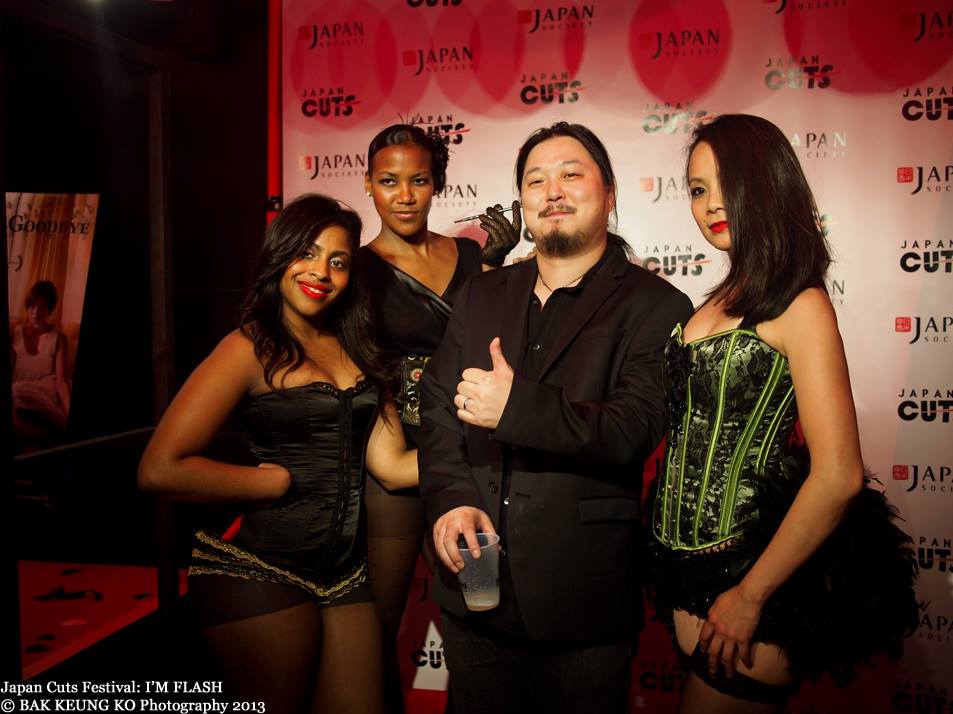
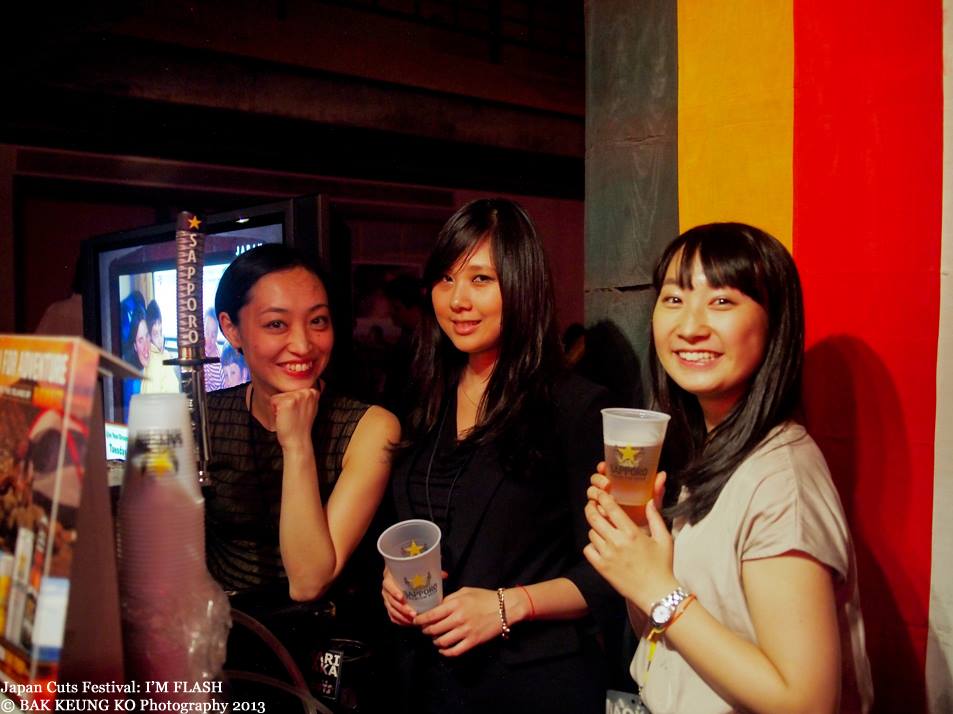
Leave a Reply